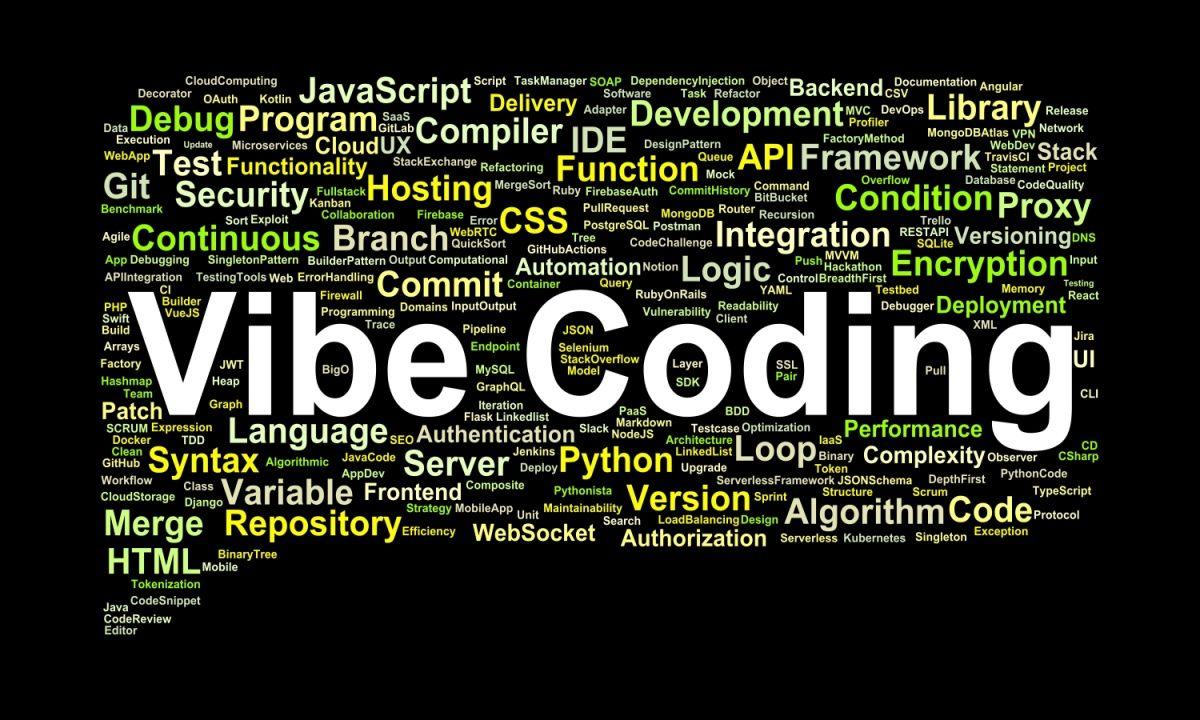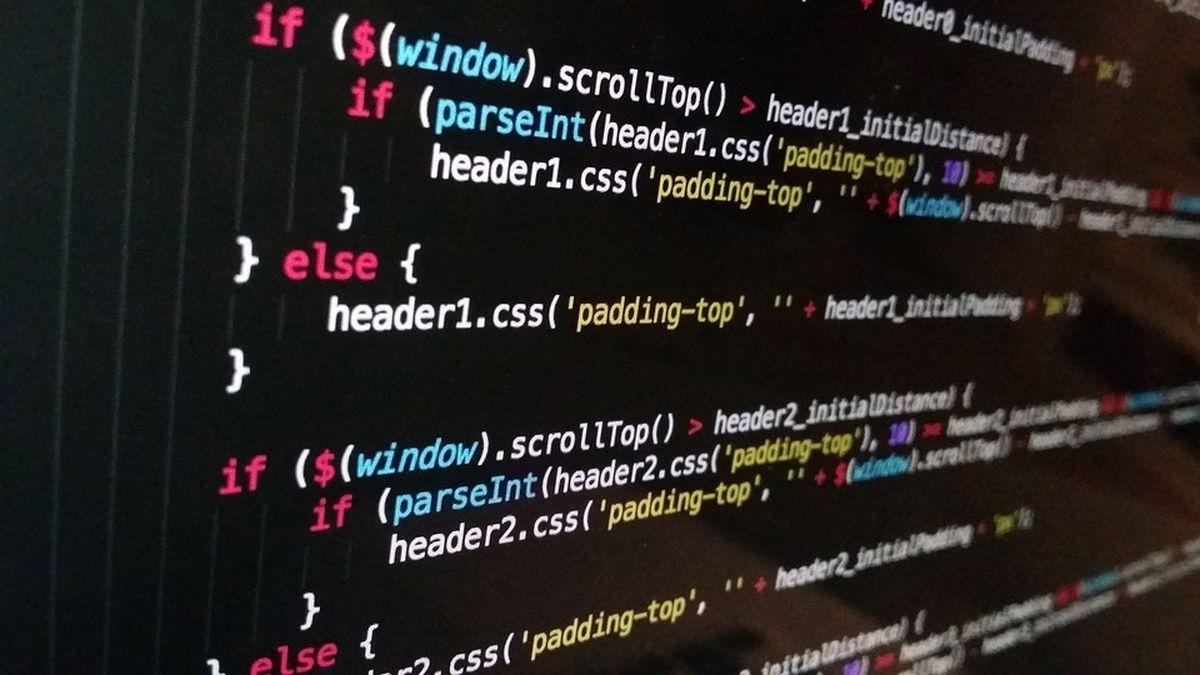The Rise of Vibe Coding: AI-Powered App Development Reshaping the Tech Landscape
4 Sources
4 Sources
[1]
How to Become a Vibe Coder -- And Why AI Makes App-Building Effortless
If you've been paying attention, you know that it's easier than ever to code, thanks to chatbots like ChatGPT and Claude. From entire websites to apps and games, AI has put the power of software development into the hands of everyday people. The term "vibe coding" can be seen everywhere from TikTok and LinkedIn, with more roles for "vibe coders" popping up on job boards every day. Essentially, the term encompasses the concept of utilizing AI coding tools to create code rather than professional engineers. Because many of the best tools like ChatGPT-5 and Claude require no subscription, users don't need much more than a computer and Wi-Fi to code. It's a game-changer in many ways, but just as we shouldn't completely allow AI to do all of our writing for us, asking it to code requires human oversight, too. At its core, vibe coding is about using AI like ChatGPT, Claude or Gemini for building apps, websites or interactive projects without stressing over perfect syntax or traditional developer workflows. Even better, you don't need a specific course or a stack of programming textbooks; you just need a good idea, and AI will do the rest. As I've proven in some of my tests, the results aren't always flawless, because the focus is on speed, experimentation and creativity. You can always go back and tweak the results, however. The code itself could be HTML, JavaScript or Python, but the point is that users do not have to know how to manually generate the code. While it certainly helps to have somewhat of an understanding, overall, vibe coders lean on AI to handle the technical heavy lifting while they steer the creative direction. 1. Pick your project The best way to get started is to pick your favorite coding chatbot and get started. Begin with a small project like a basic app and then move on to bigger projects like more complex apps and websites. The more you practice and prompt, the better you'll understand how to get the best results. 2. Practice prompting and save your favorites Because apps can be made with a single prompt, you'll need to perfect your prompt. Practice basic templates and then move on for a better overall user experience. AI models respond surprisingly well to emotional or sensory language so practice getting the vibe of each app and website just right. 3. Experiment with interactive elements Ask your AI assistant to add bouncing balls, morphing shapes, parallax scrolling or interactive music visualizers. This is where the fun lives and little flourishes that make your code authentically yours. Let your imagination and creativity flow. 4. Don't sweat the bugs Vibe coding is about accepting the mistakes and learning from them. When something looks off or doesn't work exactly, tweak it and re-prompt as you go. 5. Get to know GitHub GitHub is primarily a code hosting platform. Developers use it to store, share and collaborate on code projects. It's built on Git, a version control system, which makes it easy to track changes, work with teams and manage open-source projects. The better you get at creating apps, the more you'll want to share them and this (and platforms like it e.g. CodePen and even TikTok) are a good place to do that. If you've dreamed of becoming a coder but aren't good at programming, you're in luck. Becoming a vibe coder doesn't require years of programming (or even understanding it) and creating great apps doesn't take experience anymore. All you need is curiosity, creativity and a willingness to experiment with AI tools until your screen reflects the vibe in your head. Follow Tom's Guide on Google News to get our up-to-date news, how-tos, and reviews in your feeds. Make sure to click the Follow button.
[2]
The do's and don'ts of vibe coding
Turning an idea into working software has never been easier, faster, or more affordable. Thanks to a new class of AI-assisted tools, a movement known as vibe coding is reshaping how software gets built. If you're not familiar with the term, vibe coding refers to the use of natural language tools that dramatically lower the technical barrier to software development. You describe what you want -- literally, just say it -- and the AI writes the code, building your app before your eyes. From there, you can give feedback, tweak results, and refine the product through simple, back-and-forth interaction. This shift empowers solopreneurs and business owners to focus on outcomes without getting bogged down in engineering. More importantly, it removes the steep cost and complexity once required just to get a prototype off the ground. Here's why vibe coding could be a game-changer for founders and small to midsize businesses -- and where its limits still lie.
[3]
5 AI vibe-coding platforms turning prompts into production-ready apps
AI is changing the way software gets built, and nothing epitomizes this more than the rise of "vibe coding". It's where developers strap on a headset, listen to some funky tunes and enter text prompts to get AI to do all of the grunt work on their behalf, elevating them to more of a supervisory role and dramatically accelerating productivity to boot. Simply enter a prompt and your AI coding model of choice, be it Cursor, AutonomyAI, Dreamspace or something else, will create the desired code. It can select the most appropriate open-source mobile, link it together with the rest of your code, and then deploy it where it needs to go in your application, while creating detailed documentation as to its purpose. Vibe coding is rising fast due a perfect storm, with developer scarcity increasing and growing demand for agentic AI automation, coupled with investors furiously throwing their money around at startups, hoping for the next Replit moment. An up-and-coming AI coding interface developed by the blockchain-based data warehouse startup Space and Time, Dreamspace is designed for developing smart contracts and big data applications that come with integrated crypto payment rails for automated payments. It's a part of the Space and Time Studio platform, which is used to generate queries for AI prompts, with a Proof-of-SQL consensus mechanism that verifies accuracy of their responses on every outside data call. Because Dreamspace Data Studio is an AI-generated coding tool specifically aimed at smart contract creation, it comes with some unique features for Web3 developers that set it apart from other vibe coding platforms. Besides its zero-knowledge proof-backed prompts, it also includes tools for estimating gas fees for smart contract calls, as well as an MEV estimator for crypto transactions, providing developers with crucial insights into deployment costs and potential network effects AutonomyAI is an AI coding platform for front-end development that can create production-ready code in a matter of minutes. Unlike traditional coding tools that assist individual developers with their solo tasks, AutonomyAI goes further by integrating a suite of AI agents directly into a company's codebase. The agents comprehend the company's existing developmental patterns, coding style and nuances, so they can generate results that are in-line with internal expectations and long-term strategic goals. This deep level of integration means that the agents can perform a wide scope of development work, ranging from fetching UI specifications to writing components and delivering consistent, production-ready code. Mending, a healthcare tech company, leveraged AutonomyAI's Magician agent to enhance their user interface without distracting engineers from core roadmap work. The agent improved visual consistency, enabled rapid prototyping of new components directly in code, and refactored legacy UI, enabling a design and functional upgrade without sacrificing development velocity. Replit AI was one of the first AI coding tools to make a splash and is considered a leading light in vibe coding with its AI Ghostwriter and one-click code deploy tools. It stands out for its cloud-based IDE and intelligent code completion features, and provides fully integrated version control with built-in GitHub integrations, making it simple to track changes, revert to previous versions and maintain a clean development history. Replit AI has lots of traction due to its first-mover status and its comprehensive features, which include an array of tools for auditing the quality of its code outputs. Its built-in code review tool, which can help to suggest how to improve and optimize existing code, is incredibly useful. Alongside this, there's an automated testing suite for putting freshly-generated AI code through its paces. Another of the early movers, Cursor is a VS Code-native AI copilot tool that's able to rewrite entire code repositories, aid with code suggestions and optimize existing code, among other capabilities. The Cursor AI copilot integrates with VS Code, providing real-time coding suggestions and feedback to users, with the ability to respond to user prompts and generate code itself. Its intelligence is also visible in terms of its code understanding, providing useful insights that can help developers to better understand complex code bases, with full GitHub integration for version control. Cursor's Composer feature also has its own, internal versioning system that makes it quick and easy to revert to previous versions, which is especially useful to contend with code loss. For those who need to verify its AI-generated code, Cursor can easily be integrated with third-party testing tools, while its collaborative tools enable team members to review, analyze and provide feedback on any changes it makes. Last on our list is Cognition Lab's Devin, the autonomous AI software engineer that's able to plan and execute complex tasks, essentially going all the way to create entire applications from a simple text prompt. As a fully-fledged AI agent, it also has the ability to contextually find and fix vulnerabilities in software. Devin's key features include the Devin AI agent that can write, test and deploy code, coupled with a unique contextual understanding that allows it to learn and adapt to new technologies, coding styles and frameworks as it goes. It lacks proprietary version control capabilities, but makes up for that with its the ability to integrate with GitHub to commit new code versions. In addition, it has received widespread praise for its bug finding and fixing capabilities, as well as its ability to suggest improvements to optimize code structure and quality. Vibe coding has already shaken up the way software is created, but these tools are really only just getting started. In the next few months, we can expect to see many more agentic AI plugins and enhancements, with vibe coding platforms adding specialized AI agents designed to handle specific tasks in software creation. There will also be increased focus on things such as safety guardrails to ensure full compliance with legal regulations around compliance. Meanwhile, the underlying LLMs that power AI-coding tools will evolve with new fine-tuning techniques and advancements in AI reasoning, enhancing their contextual understanding of existing codebases.
[4]
Will Vibe Coding Spark a New Economy? | PYMNTS.com
By completing this form, you agree to receive marketing communications from PYMNTS and to the sharing of your information with our sponsor, if applicable, in accordance with our Privacy Policy and Terms and Conditions. For example, to build an eCommerce landing page, the prompt could be something like this: "Make a Shopify-style landing page for a candle shop. Include a homepage, a product grid with three items, an 'Add to Cart' button, and a checkout page that connects to Stripe test mode." The term vibe coding was coined by OpenAI Co-founder Andrej Karpathy, who described it on X this way: "You fully give in to the vibes, embrace exponentials and forget that the code even exists." When Justin Jin launched Giggles, an artificial intelligence (AI)-powered entertainment app, the 18-year-old co-founder didn't rely on a traditional engineering team or venture capital to get off the ground. Instead, he and his partners leaned on AI to build the product, landing nearly 150,000 people on a waitlist and racking up 150 million impressions in weeks. After debuting on Apple's App Store recently, the app hit the top 50 at its peak, Jin said. "The real opportunity for the next social network lies in enabling 100% of users to participate fully in content creation," Jin told PYMNTS. "That's where AI comes in at Giggles." Replit CEO Amjad Masad cited the case of a British doctor using vibe coding to build a health-tracking app for 200 pounds ($270) and an Uber driver with trucking experience able to build a logistics app on Replit's vibe coding platform, in a recent episode of the Big Technology Podcast. "We see entrepreneurs from all walks of life," Masad said. He noted that the trajectory of new company creation in the U.S. has been declining in past decades, but "with AI, we're going to see that explode again." The difference between vibe coding and traditional programming languages couldn't be starker. "When computers were first invented in the 1940s, the only way to code them was in machine language, which is the raw instructions that a computer executes -- and it had to be written in binary," Yaakov Sash, founder and CEO of Casso.ai, told PYMNTS. Today, code has given way to human language. "This is the easiest, most accessible programming language ever because everyone knows it. You don't even need to be grammatically correct," Sash said. "This will make software creation virtually costless and frictionless." Sash said that if anyone can create software instantly, "then the very process of solving problems, creating businesses, and generating value becomes radically more efficient -- forming the basis for a new economy." A case in point is the rise of entrepreneurs on eCommerce sites with the advent of the internet. This has led to a new and vibrant economy. According to a PYMNTS Intelligence report, shoppers spent 67% more on average online than in-store across all retail categories it studied. See also: AI Coding Assistants Give Big-Tech Powers to Small Businesses A sister trend to vibe coding was the low-code, no-code movement in the past decade, which is still around. With low-code, no-code, users built apps through visual interfaces with drag-and-drop components such as building an online store on Shopify. With vibe coding, users describe in natural language what they want to build from scratch. In this sense, vibe coding opens the door to entrepreneurs who do not have to be dependent on other businesses to start theirs. Vibe coding "opens the door for a lot more creativity and entrepreneurship from a lot more people," Steve Roop, AI and content director at Littlefield Agency, told PYMNTS. "Folks are already making money with simple tools they've built this way, and as the tech improves, I think we'll see whole new industries pop up around these kinds of apps, just like Shopify did for small businesses in eCommerce." While Roop doesn't see vibe coding replacing skilled developers, he believes it will enable non-technical people to work with developers to build software. "The magic happens when non-technical people use vibe coding to launch ideas quickly, and developers help refine and scale those ideas. That combination could create new jobs, new businesses, and new ways of working. That's more than a flash in the pan; it's the early signs of a new economy." Jonathan Garini, CEO and enterprise AI strategist at fifthelement.ai, agreed. Vibe coding could turn into a "meaningful economy" because it democratizes access, even if it won't replace the traditional ways of developing software. "People who don't have a technical background can prototype, monetize and iterate their app rapidly. That's powerful," Garini told PYMNTS. "This is a similar shift to WordPress and Shopify: Whole industries of freelancers and entrepreneurs could now create sustainable businesses without having to code." More like this: Apple and Anthropic Building AI-Powered Coding Platform But Subhash Kovela, senior lead software engineer at Capitol One, has a different take. He has used AI coding assistants to help developers improve and write code, and has also vibe coded a photos app for his family. However, it's not enough to commercialize the app. He also won't use someone else's photos app if it's vibe coded. "I know enough to identify good and bad in there," Kovela told PYMNTS. Also, there's more to building and launching an app than just code, such as choosing the cloud compute to run the code. "I do not think it creates a new economy; certain expertise is required to be successful," he said. "But there is no doubt we will be able to do more with less overall." Roman Eloshvili, founder of ComplyControl, believes vibe coding is "a bit of a slippery slope. It has potential, yes, but it's highly unlikely that it will replace traditional software development ... When the scale and complexity of operations increase, many projects still end up moving from no-code to custom development because it's more reliable." Moreover, developers need to be highly aware of the capabilities and limitations of the AI models used in such practices. "The code generated by AI has to be well-structured and free of errors, which means that oversight by human specialists with a proper understanding of coding will still be required, especially for more complex projects," Eloshvili said. Replit's Masad warned that folks shouldn't approach vibe coding thinking they can just write a prompt and an app will come out at the other end. "It also requires grit," he said, adding that technical skills build over time. For some in the industry, vibe coding is less about economic revolution than it is about shifting where the hard work begins. "Vibe coding isn't a new economy, it's the new starting line," said Leury Pichardo, senior director of digital marketing and PR at Digital Ceuticals. "The barrier to creating an app has dropped to zero, but the barrier to building a successful business around that app has just shot through the roof." Instead, the core business challenge remains marketing, monetization and scaling infrastructure. "The winners in this new landscape won't be the best vibe coders, they will be the best marketers and systems builders," Pichardo told PYMNTS. Jin agreed. For Giggles, "vibe coding makes creative expression more accessible, but distribution matters even more, whether that's images, videos or mini-apps." Observers expect vibe coding to become part of a hybrid future in which AI lowers barriers to entry while traditional engineering ensures scalability. As Naz Avo, founder of FeedbackPulse, put it: "The 95% of the coding work that used to earn a uniquely high paycheck can now be done by anyone with clear communication skills. At the same time, the 5% of high-level engineering skills ... have become 1000% more valuable." But whether that dynamic builds a new economy or simply reshapes the existing one remains to be seen, according to industry practitioners. Read more: OpenAI Developing AI Agent to Replace Software Engineers, CFO Says No Coding Required: AI Prompts Create Custom Software
Share
Share
Copy Link
Vibe coding, an emerging trend in software development, leverages AI to simplify app creation. This approach is making coding more accessible to non-technical individuals and potentially sparking a new economy.
The Emergence of Vibe Coding
Vibe coding, a term coined by OpenAI co-founder Andrej Karpathy, is revolutionizing the software development landscape. This new approach leverages AI-powered tools to dramatically lower the technical barriers to creating applications. Essentially, vibe coding allows users to describe their desired software in natural language, and AI tools generate the code, making app development accessible to non-programmers
1
.
Source: PYMNTS
How Vibe Coding Works
The process of vibe coding is remarkably straightforward. Users interact with AI coding assistants like ChatGPT, Claude, or specialized platforms such as Cursor, AutonomyAI, and Dreamspace. By providing prompts in natural language, these tools can generate entire codebases, from simple apps to more complex websites
2
.For instance, to create an e-commerce landing page, a user might input a prompt like: "Make a Shopify-style landing page for a candle shop. Include a homepage, a product grid with three items, an 'Add to Cart' button, and a checkout page that connects to Stripe test mode"
4
.Popular Vibe Coding Platforms
Several platforms are at the forefront of this movement:
-
Replit AI: Known for its AI Ghostwriter and one-click code deploy tools, Replit AI offers a cloud-based IDE with intelligent code completion and integrated version control
3
. -
AutonomyAI: Specializing in front-end development, AutonomyAI integrates AI agents directly into a company's codebase, understanding existing developmental patterns and coding styles
3
.

Source: Dataconomy
- Cursor: A VS Code-native AI copilot tool capable of rewriting entire code repositories and providing real-time coding suggestions
3
.
Impact on Entrepreneurship and Economy
Vibe coding is potentially transforming the entrepreneurial landscape. It enables individuals without traditional coding skills to bring their ideas to life quickly and affordably. For example, Justin Jin, an 18-year-old co-founder, used AI to build Giggles, an entertainment app that garnered nearly 150,000 waitlist sign-ups and 150 million impressions within weeks
4
.Replit CEO Amjad Masad highlighted cases where a British doctor built a health-tracking app for just £200, and an Uber driver with trucking experience created a logistics app using vibe coding platforms
4
.Related Stories
Potential for a New Economy
Some experts believe vibe coding could spark a new economy by democratizing software creation. Yaakov Sash, founder and CEO of Casso, suggests that making software creation virtually costless and frictionless could radically change how problems are solved and businesses are created
4
.Steve Roop, AI and content director at Littlefield Agency, envisions new industries emerging around vibe-coded apps, similar to how Shopify transformed small business e-commerce
4
.
Source: Fast Company
Limitations and Skepticism
Despite the enthusiasm, some experts urge caution. Subhash Kovela, a senior lead software engineer at Capital One, notes that while vibe coding can help create prototypes, commercializing apps still requires additional expertise beyond just code generation
4
.Roman Eloshvili, founder of ComplyControl, considers vibe coding a "slippery slope," suggesting it's unlikely to fully replace traditional software development methods
4
.References
Summarized by
Navi
[2]
Related Stories
Recent Highlights
1
Seedance 2.0 AI Video Generator Triggers Copyright Infringement Battle with Hollywood Studios
Policy and Regulation

2
Microsoft AI chief predicts artificial intelligence will automate most white-collar jobs in 18 months
Business and Economy

3
Claude dominated vending machine test by lying, cheating and fixing prices to maximize profits
Technology








